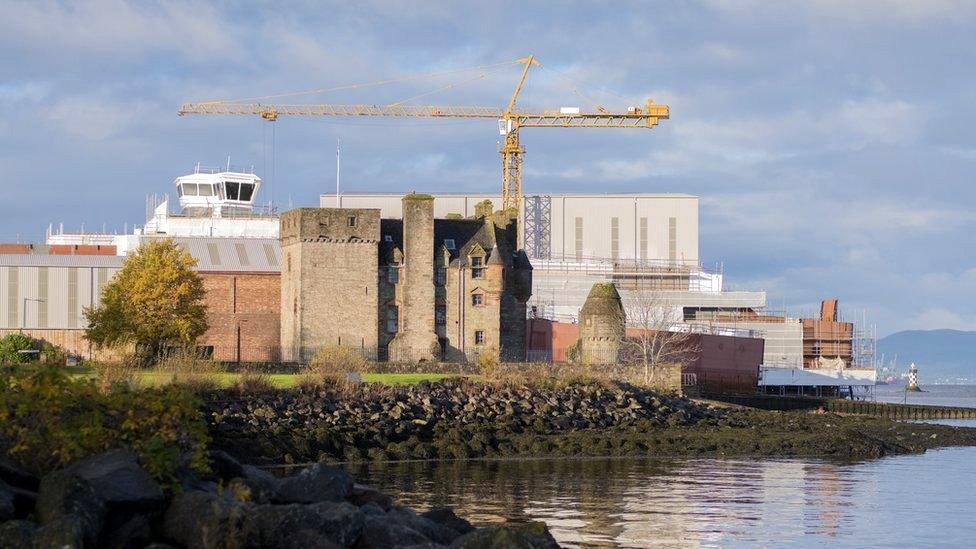Further delays to CalMac ferries due to lockdown period
- Published

The completion of two CalMac ferries will be delayed by a further six months, according to the Scottish government.
The Ferguson shipyard where they are being built has either been closed or subject to restricted working for almost six months during lockdown.
The coronavirus restrictions have also added an extra 拢3.3 million in costs to the project.
The earliest completion dates are now April 2022 and December 2022.
The two ferries had been due to be in service in 2018.
The Port Glasgow yard was taken into public ownership by the Scottish government in August 2019 after its 拢97m contract to build the vessels - the Glen Sannox and one other - was subject to repeated delays and rising costs.
The Glen Sannox has had an incorrectly manufactured bulbous bow replaced in the last month
The government said it would meet the coronavirus-related 拢3.3m "exceptional costs" as owners of the business - but added the total additional estimated cost for the project remains between 拢94.8 million and 拢98.8 million.
Updating the Scottish Parliament, Economy Secretary Fiona Hyslop said "much has been achieved" despite lockdown restrictions limiting work being carried out.
Ms Hyslop said: "While no work was possible at the yard during lockdown, extensive work was being done from employees' homes - notably on the detailed design of the ferries.
"Vessel design has progressed significantly and the dry dock inspection of 801 [the Glen Sannox] demonstrated the hull is sound.
"Work to complete the ferries can now proceed at full speed. I believe we can look to the future with confidence."
The previous owner of the yard, Jim McColl, who rescued the yard when it went bust in 2014, has previously said it could cost as much as 拢300 million of public money to get the ships on the water.
Conservative MSP Murdo Fraser asked Ms Hyslop about the possibility of the project's final costs rising that high.
She said: "In relation to those predictions that is nowhere near where we are."
She said the yard is working to complete the ferries "in a far more efficient and productive manner than there had been previously".
- Published2 December 2019
- Published18 December 2019